Woman Refuses To Return Kitten She Got For Free From Breeder, Seeks Validation About Her Action
We all know that cats require less care as pets than dogs do. They can even perform simple self-cleaning tasks, and they don't need to be taken out frequently or have official instructions.
Long-haired cats will still need to be groomed regularly, but perhaps less frequently than long-haired dogs. The OP of today's story chose to get a cat because her friend got one for herself.
The OP and her kids have started bonding with the cat, as there has been lots of cuddling and playtime. Normally, cats are given plenty of space and are allowed to take their time adjusting when they first meet their new family.
They find it challenging to acclimate to a new setting with many unfamiliar sights, sounds, and even tastes. Your cat may have different ideas, even though you might be eager to pick them up and cuddle them right away.
So, providing your cat with a room of their own is a terrific way to help them feel more at ease in your home. The OP did all these things only to be told that her cat was promised to someone else and that she had to trade it for another cat.
Of course, the OP wasn't willing to do that, so she didn't even reply. But now, she wants to know if she's an AH for not returning the cat.
The OP writes
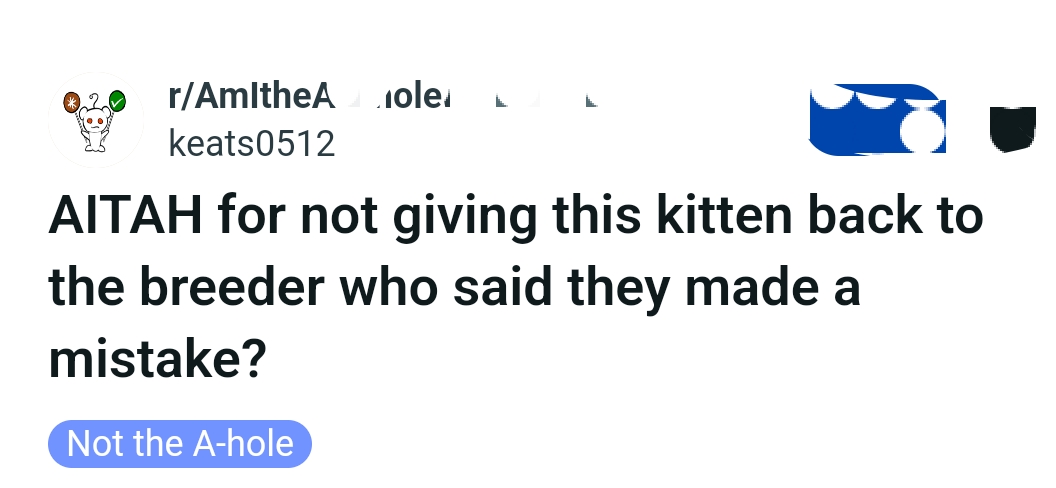
Here's the full story
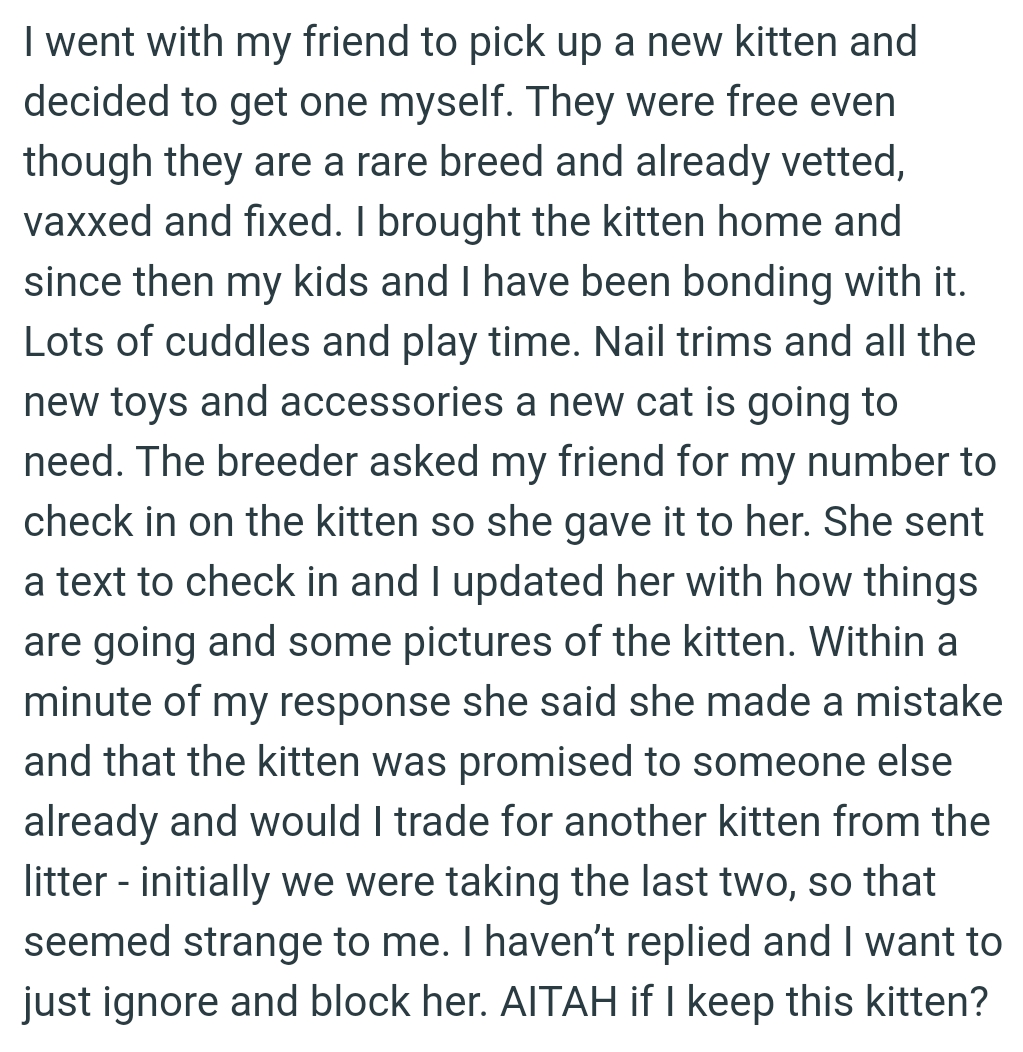
OP has offered the following explanation for why they think they might be the a-hole:
I got a free kitten, and the breeder wants the kitten back. AITAH if I don’t return the kitten?
And the comments roll in...
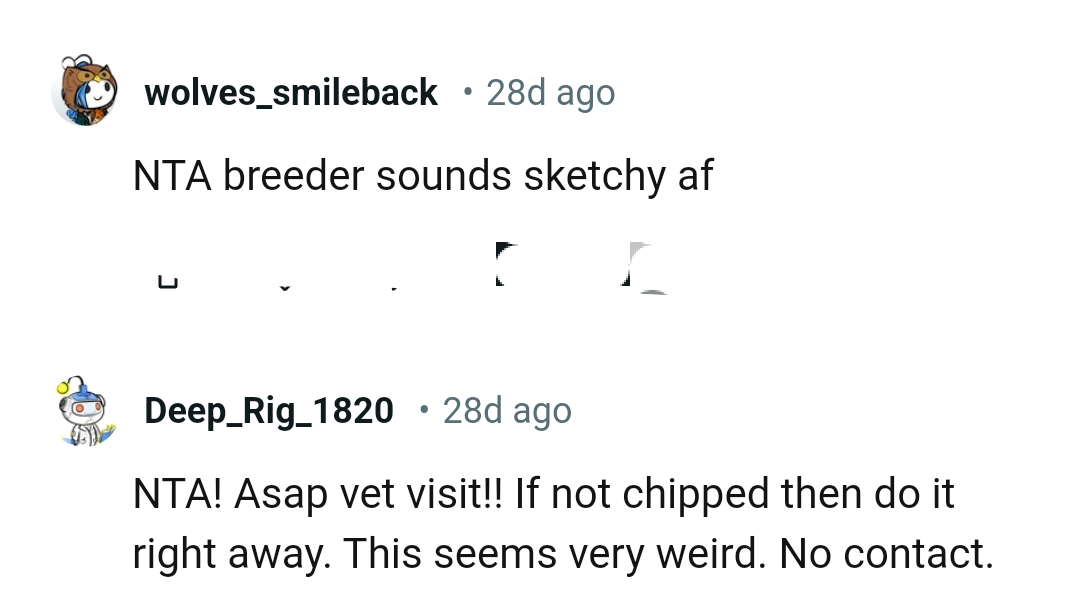
The OP shouldn't be in contact

Understanding Ownership and Attachment
The situation regarding the kitten reflects deeper psychological themes of ownership and attachment. Research in developmental psychology indicates that pets often serve as emotional support, and the bond formed can lead to complex feelings about ownership.
According to studies, the attachment to pets can mirror familial relationships, where individuals often feel a strong emotional connection that complicates decisions about ownership.
That is the OP's kitty
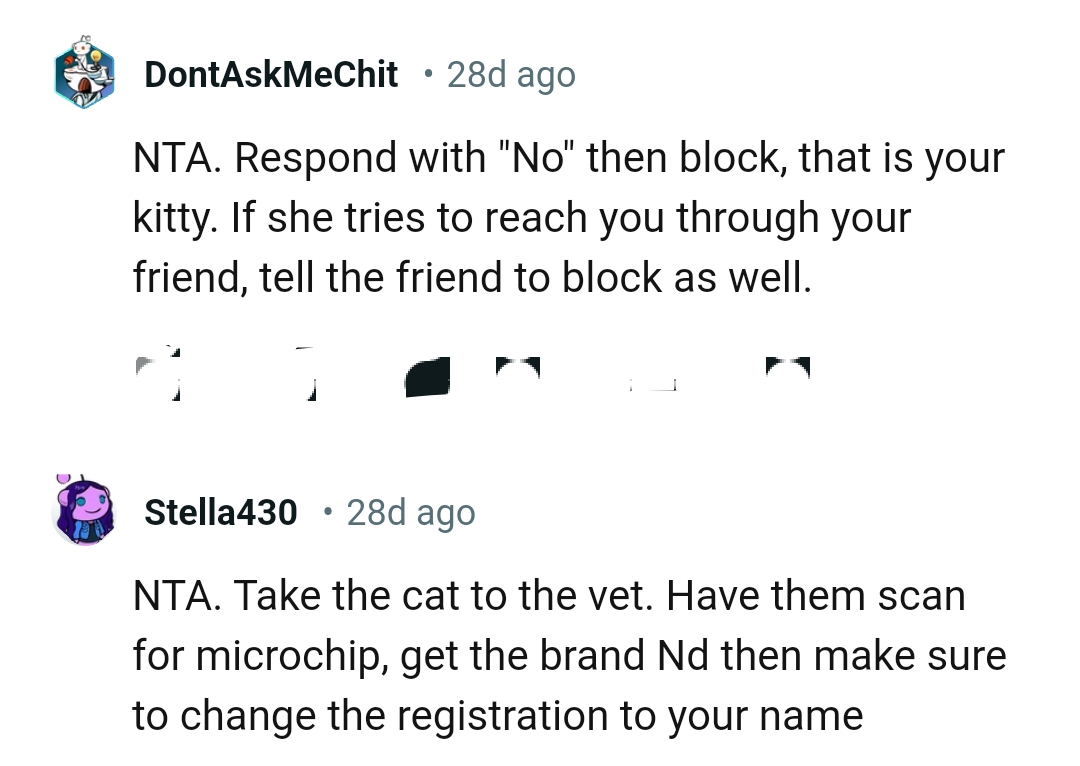
No money was exchanged

Additionally, the concept of entitlement plays a significant role in how individuals perceive ownership. Psychological research suggests that when someone receives a gift, they may develop a sense of ownership that supersedes previous agreements, leading to conflict.
Understanding these dynamics can help individuals reflect on their motivations and the impact of their decisions on others.
They changed their minds
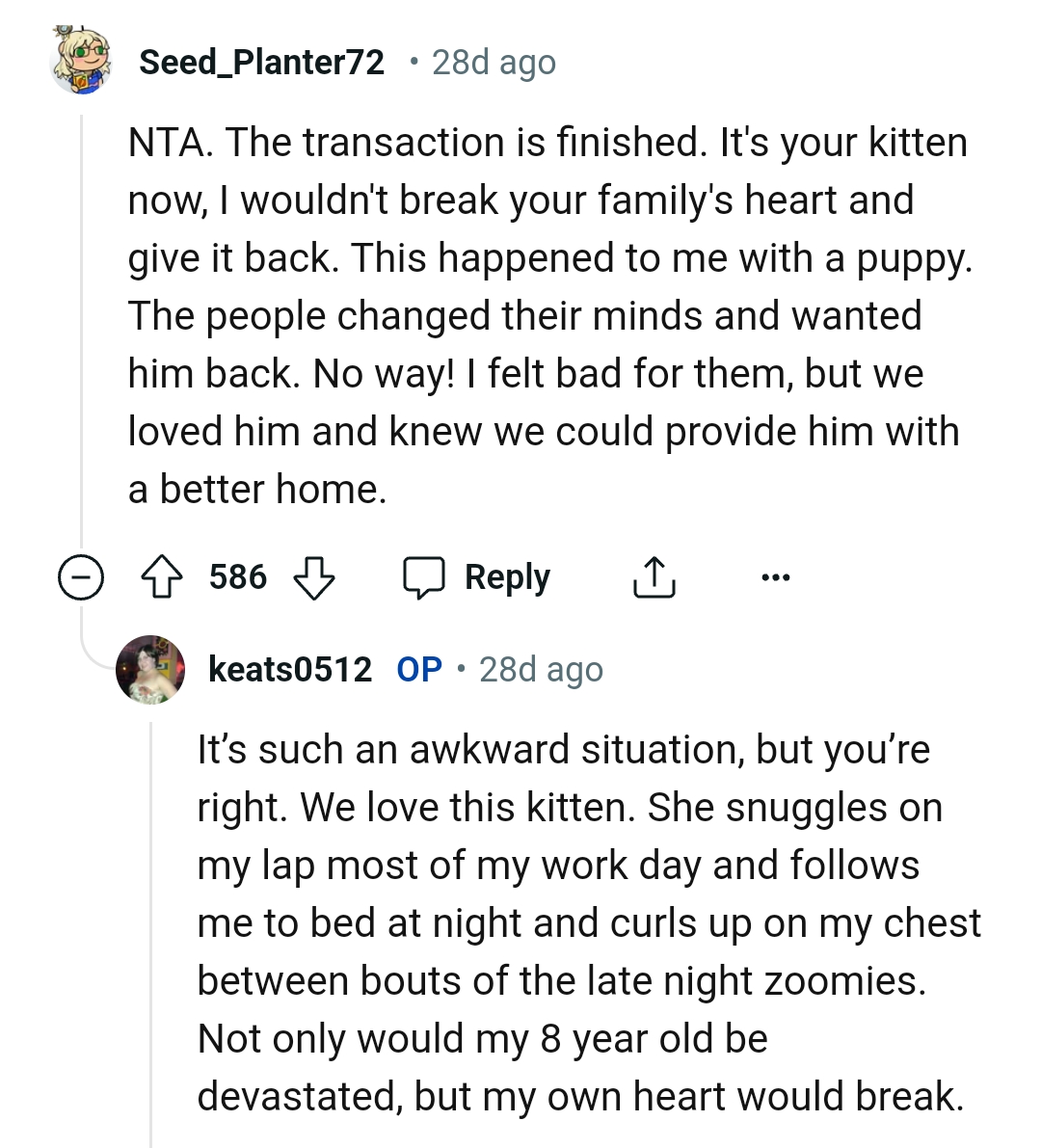
Blocking the breeder
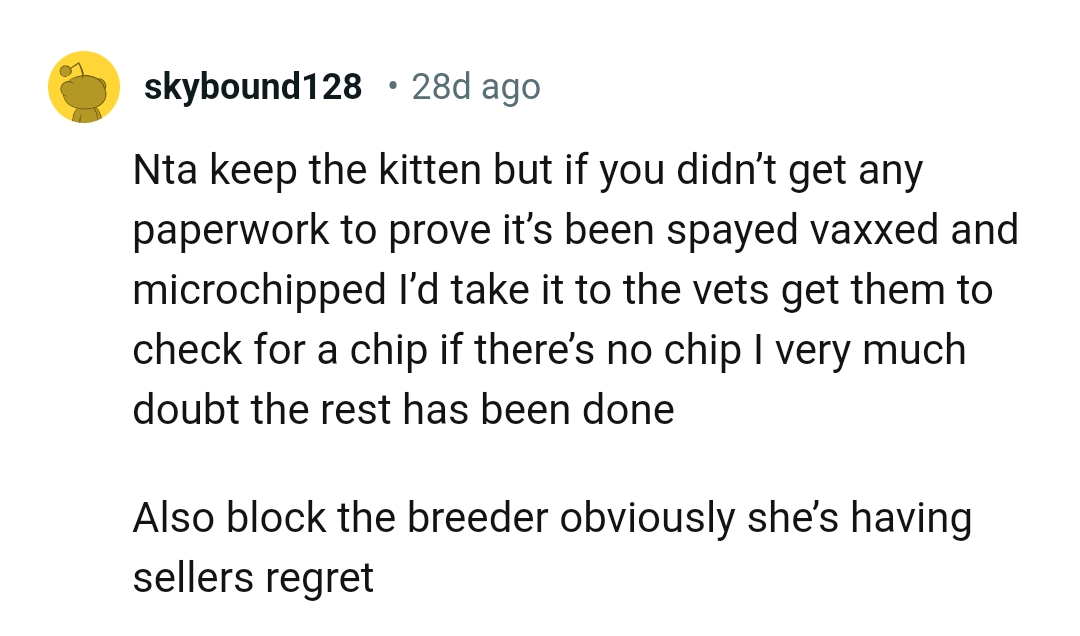
The OP also left this detail in the comments
There was no paperwork. Basically, she met us halfway and handed me the kitten out of the window of her vehicle. No paperwork, no vet records, no money exchanged. I expected her to at least ask for a rehoming fee to recoup the costs she’s incurred, but she was so eager to get rid of the cats that I figured she had bred them and couldn’t sell them, so she was cutting her losses. I was fairly confident the litter wasn’t registered, but since she will just be a pet and not bred or shown, it didn’t matter to me.
The OP has started bonding with the cat
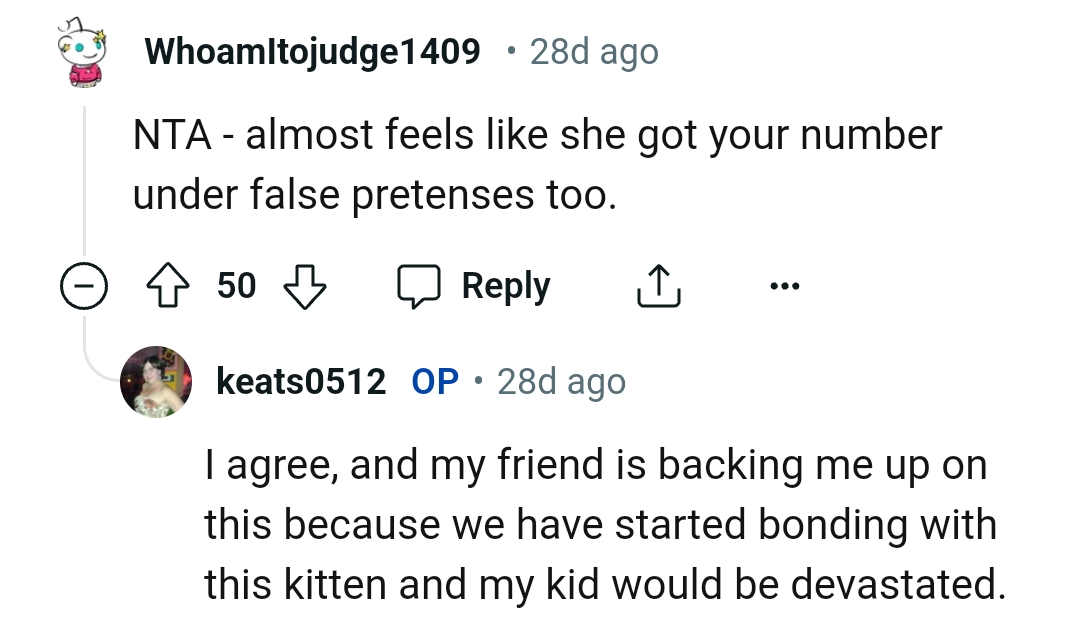
The OP should get it chipped
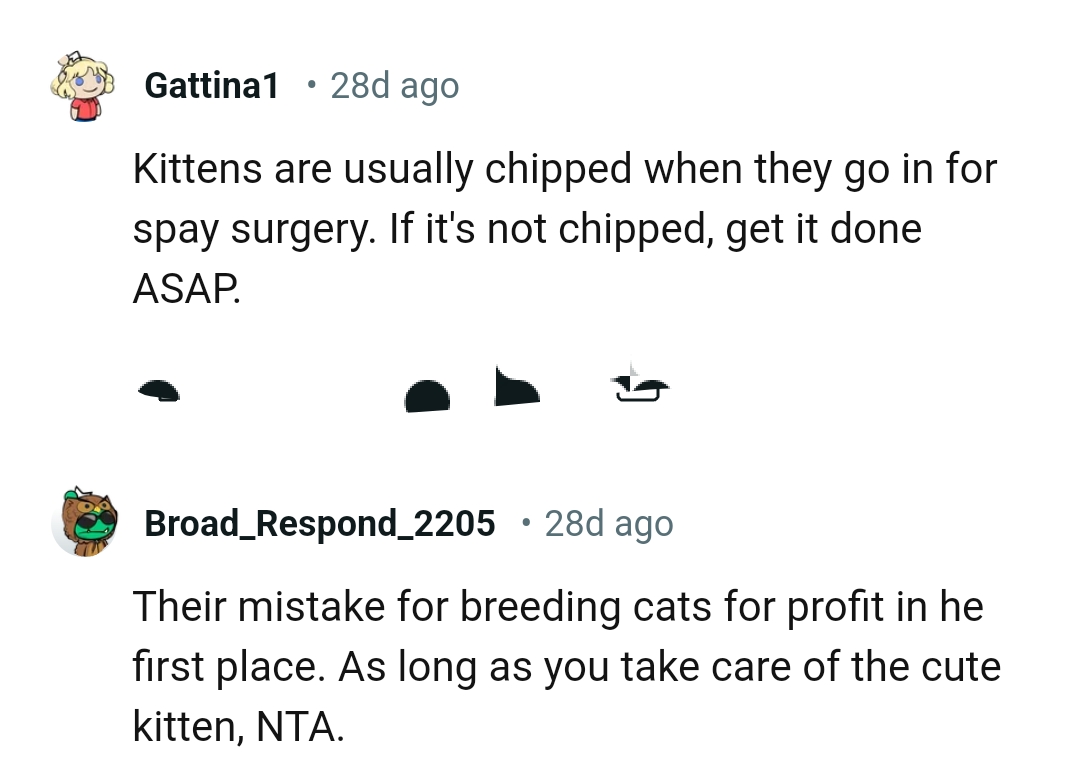
Navigating Ethical Dilemmas
When faced with ethical dilemmas, such as returning a pet that was promised to someone else, individuals can benefit from applying ethical reasoning frameworks. These frameworks encourage individuals to consider the implications of their actions on all parties involved.
Research in moral psychology emphasizes the importance of empathy in decision-making, suggesting that considering another's perspective can lead to more equitable outcomes.
She isn't spayed or chipped
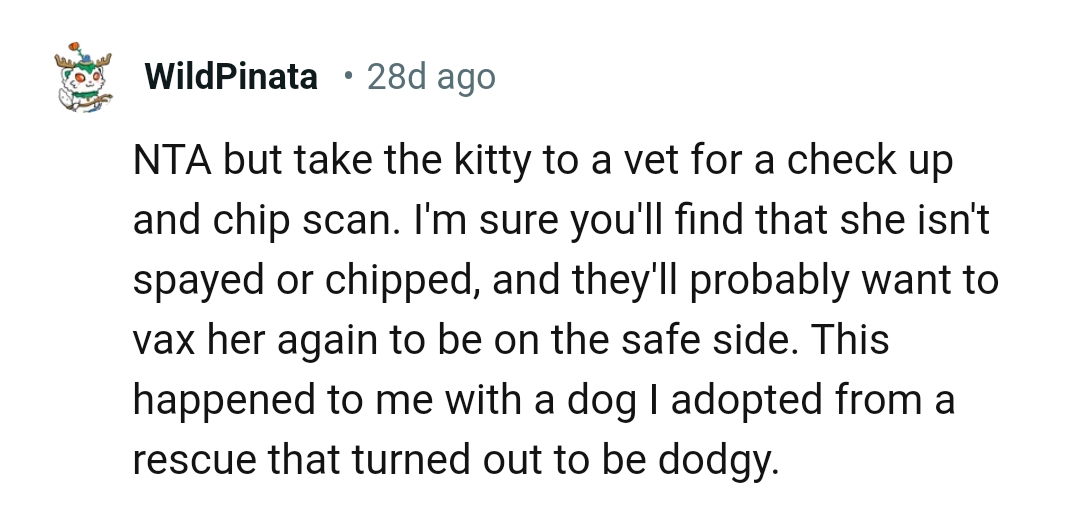
Ignore and block
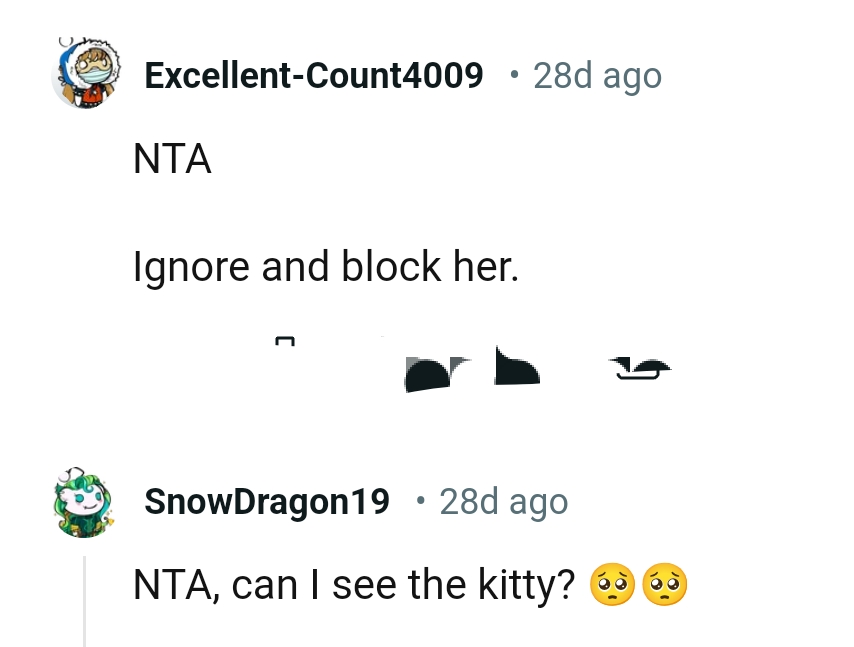
Furthermore, engaging in open discussions about ethical decisions can foster mutual understanding and respect. Family therapists often recommend exploring the feelings of all parties involved to reach a resolution that honors everyone’s emotional attachment.
Empathizing with others' feelings can lead to more compassionate choices and strengthen social relationships.
Psychological Analysis
This situation illustrates the complexities surrounding feelings of ownership and attachment. Open discussions about the emotional implications of decisions can help individuals navigate these dilemmas more effectively.
Encouraging empathy and understanding can lead to more equitable outcomes for all involved.
Analysis generated by AI
Analysis & Alternative Approaches
In conclusion, navigating the complexities of ownership and attachment requires careful consideration and empathy. Understanding the emotional connections involved can guide individuals in making decisions that honor all parties' feelings.
By fostering open dialogue about ethical dilemmas, individuals can enhance their relationships and promote understanding.
Cats are creatures of habit and tend to find comfort in routine. By trying to be as consistent as possible, you can ease your cat's transition into a new home, and the OP has already achieved this.
Although this is bad news for the person, the OP already owns the cat. If the person they were intended to hold it for has already paid or has done anything similar, they have the option to return the money, as the OP was declared not the AH.



